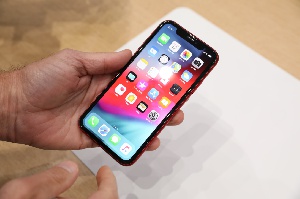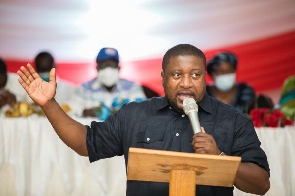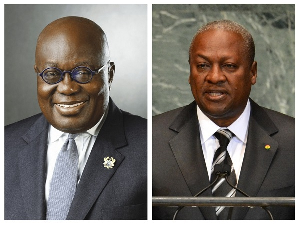Tamale, Sept. 17, GNA - Participants at a forum in Tamale called for an amendment of the Local Government Law, Act (462) of 1993, to reduce the powers of District, Municipal and Metropolitan Chief Executives (DMMCEs), to ensure more accountability in local level governance.
They also proposed that DMMCEs should be nominated by the President, interviewed by Public Services Commission (PSC) and directly elected by the people.
Participants from the public and private sectors, political parties, civil society groupings and anti-corruption agencies in the Upper East, Upper West and the Northern Regions, were brainstorming on the suggestion that the Chief Executives should be elected, at a round table discussion.
The event was organized by Ghana Ant-Corruption Coalition (GACC), a civil society organization, facilitating anti-corruption activities in Ghana.
GACC also sought to create a forum for interaction between government and public and private sector institutions engaging in anti-corruption campaign, to encourage the exchange and dissemination of information as well as joint sponsorship of programmes for effective results.
The Tamale meeting, one of three events to be organized in the country to seek views on the election of DMMCEs, was on the theme: "Election or Nomination of District Chief Executives - Option for Promotion of an Effective, Efficient, Transparent and Accountable District Governance System."
Most of the participants claimed that DMMCEs had colossal powers and lord their positions over Assembly Members and were not accountable and answerable to any one in the Assembly since they drew their powers from Central Government.
According to the participants, if DMMCEs were directly elected by the people, it would have reduced alleged bribery and corruption in the assemblies and "arrogance and disrespect" against chiefs and Members of Parliament by some Chief Executives would have ceased. While some participants argued that direct election of DMMCEs would be time consuming, expensive and slow down government business, others were of the view that they should be elected alongside other political office seekers in national elections.
After a long and heated debate, participants arrived at the consensus that the Chief Executives should be nominated by the President, interviewed by PSC and directly elected by the people to help reduce corruption in the assemblies.
Mr Stephen Sumani Nayina, Northern Regional Minister, expressed concern about the allegation that some Assembly Members in the region demanded mobile phones and mobile units before voting to confirm DMMCEs. He said: "The situation is very embarrassing and it cuts across the National Democratic Congress (NDC) and the New Patriotic Party (NPP). We should not pretend that all is well with the confirmation of the Chief Executives. It is an unfavourable situation that we should all fight." Mr Nayina said if the trend continued the DMMCEs would be suspected of corruption since they would need money to defray whatever expenses that they would incur and called on Assembly Members to remain patriotic to enhance development.
Mr Kwamena Ahwoi, a lecturer at Ghana Institute of Management and Public Administration, observed that it was not necessary for DMMCEs to be directly elected since it would defeat the President's purpose of nominating them.
He said that even though the NPP captured in its manifesto that it would ensure the election of the Chief Executives, the party could not achieve this objective during its eight years in office because the demerits overweighed the merits.
Mr Ahwoi, an architect of the decentralization process, was presenting a paper on "District Governance System", at the meeting. He said that in advanced countries where DMMCEs were elected, they generated their own revenue for development and payment of Chief Executives but some districts in Ghana would not be able to do this. Mrs. Florence Denis, Executive Secretary of GACC, observed that whatever method that would be adopted to choose DMMCEs, they should be accountable to the people at the local level governance. She said some major political parties in the country advocated the election of DMMCEs and there was the need for people with the right expertise to handle the issue to enable Ghana to chart a path that would promote growth and development.
Mrs Denis said GACC would continue to collaborate with the relevant anti-corruption bodies to advocate programmes that would assist in promoting good governance to ensure that corruption was eliminated from the country.










